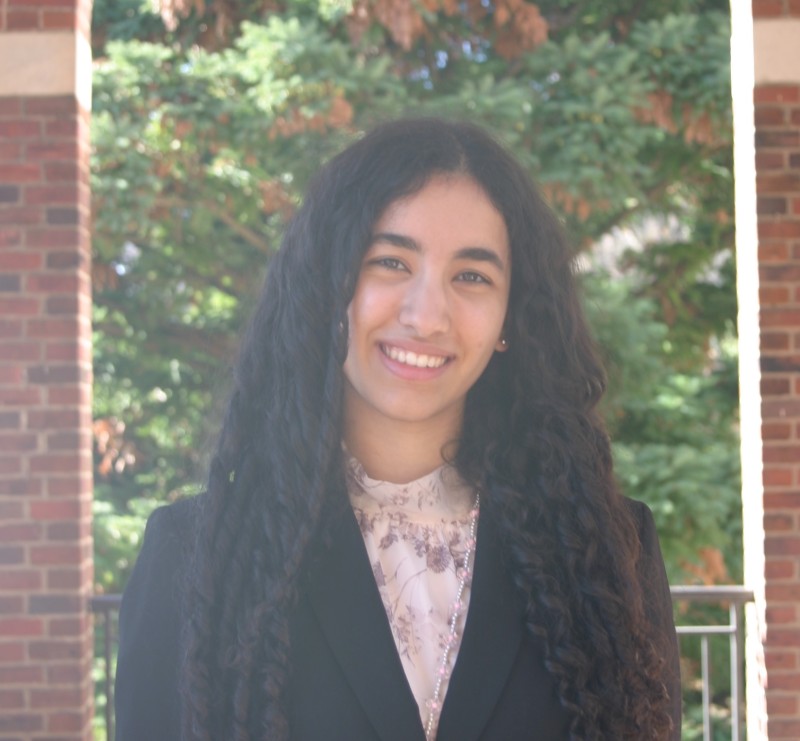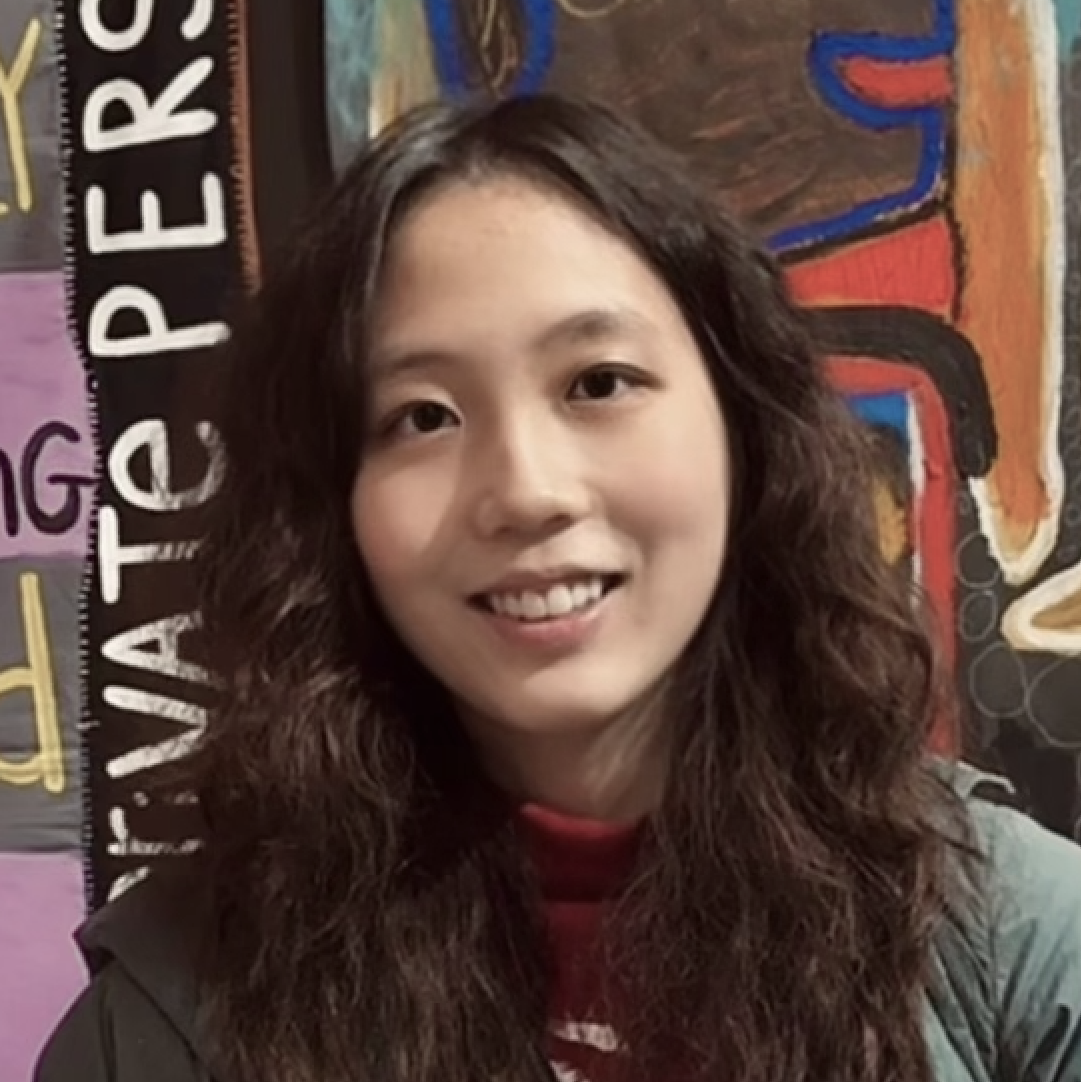Preprints
1. Valid Survey Simulations with Limited Human Data: The Roles of Prompting, Fine-Tuning, and Rectification
Stefan Krsteski, Giuseppe Russo, Serina Chang, Robert West, and Kristina Gligorić.
Preprint, 2025.
2. Attention to Non-Adopters
Kaitlyn Zhou, Kristina Gligorić, Myra Cheng, Michelle S. Lam, Vyoma Raman, Boluwatife Amin, Caeley Woo, Michael Brockman, Hannah Cha, and Dan Jurafsky.
Preprint, 2025.
3. AI for Sustainable Future Foods
Bianca Datta, Markus J. Buehler, Yvonne Chow, Kristina Gligorić, Dan Jurafsky, David L. Kaplan, Rodrigo Ledesma-Amaro, Giorgia Del Missier, Lisa Neidhardt, Karim Pichara, Benjamin Sanchez-Lengeling, Miek Schlangen, Skyler R. St. Pierre, Ilias Tagkopoulos, Anna Thomas, Nicholas J. Watson, and Ellen Kuhl.
Preprint, 2025.
4. Meat-Free Day Reduces Greenhouse Gas Emissions but Poses Challenges for
Customer Retention and Adherence to Dietary Guidelines
Giuseppe Russo, Kristina Gligorić, Vincent Moreau, and Robert West.
Preprint, 2025.
Publications
2025
1. What Can Large Language Models Do for Sustainable Food?
Anna T. Thomas, Adam Yee, Andrew Mayne, Maya B. Mathur, Dan Jurafsky, and Kristina Gligorić.
ICML, 2025.
Also presented at Tackling Climate Change with Machine Learning at ICLR 2025 and AI & Scientific Discovery Workshop at NAACL 2025.
Food System Innovation media coverage, The Bittman Project
2. Can Unconfident LLM Annotations Be Used for Confident Conclusions?
Kristina Gligorić*, Tijana Zrnic*, Cinoo Lee*, Emmanuel Candès, and Dan Jurafsky.
NAACL, 2025.
GitHub tutorial
Tutorial website: Bridging Human and LLM Annotations for Statistically Valid Computational Social Science
2024
3. Food Choice Mimicry on a Large University Campus.
Kristina Gligorić, Arnaud Chiolero, Emre Kıcıman, Ryen W. White, Eric Horvitz, and Robert West.
PNAS Nexus, 2024.
4. People who share encounters with racism are silenced online by humans and machines, but a guideline-reframing intervention holds promise.
Cinoo Lee*, Kristina Gligorić*, Pratyusha Ria Kalluri*, Maggie Harrington*, Esin Durmus, Kiara L. Sanchez, Nay San, Danny Tse, Xuan Zhao, MarYam G. Hamedani, Hazel Markus, Dan Jurafsky, and Jennifer L. Eberhardt.
PNAS, 2024.
5. In-class Data Analysis Replications: Teaching Students while Testing Science,
Kristina Gligorić*, Tiziano Piccardi*, Jake Hofman, and Robert West.
Harvard Data Science Review, 2024.
6. Measuring and Shaping the Nutritional Environment via Food Sales Logs: Case Studies of Campus-Wide Food Choice and a Call to Action,
Kristina Gligorić, Robin Zbinden, Arnaud Chiolero, Emre Kiciman, Ryen W. White, Eric Horvitz, and Robert West.
Frontiers in Nutrition, 2024.
7. NLP Systems That Can’t Tell Use from Mention Censor Counterspeech, but Teaching the Distinction Helps,
Kristina Gligorić, Myra Cheng, Lucia Zheng, Esin Durmus, and Dan Jurafsky.
NAACL, 2024.
Tech Policy Press coverage
8. Grounding Gaps in Language Model Generations,
Omar Shaikh*, Kristina Gligorić*, Ashna Khetan, Matthias Gerstgrasser, Diyi Yang, and Dan Jurafsky.
NAACL, 2024.
9. Othering and low prestige framing of immigrant cuisines in US restaurant reviews and large language models,
Yiwei Luo, Kristina Gligorić, and Dan Jurafsky.
ICWSM, 2024.
10. AnthroScore: A Computational Linguistic Measure of Anthropomorphism,
Myra Cheng, Kristina Gligorić, Tiziano Piccardi, and Dan Jurafsky.
EACL, 2024.
Scientific American Media Coverage, New Scientist Media Coverage
Demo website
2023
11. Revealed versus potential spatial accessibility of healthcare and changing patterns during the COVID-19 pandemic,
Kristina Gligorić*, Chaitanya Kamath*, Daniel Weiss*, Shailesh Bavadekar, Yun Liu, Tomer Shekel, Kevin Schulman*, and Evgeniy Gabrilovich*.
Nature Communications Medicine, 2023.
Blog post
12. Linguistic effects on news headline success: Evidence from thousands of online field experiments (registered report),
Kristina Gligorić, George Lifchits, Robert West, and Ashton Anderson.
PLOS ONE, 2023.
2022
13. Computational Approaches for Studying Dietary Behaviors with Digital Traces,
Kristina Gligorić.
Ph.D. Thesis, EPFL, 2022.
14. Biased Bytes: On the Validity of Estimating Food Consumption from Digital Traces,
Kristina Gligorić, Irena Djordjević, and Robert West.
CSCW, 2022.
15. Anticipated versus Actual Effects of Platform Design Change: A Case Study of Twitter’s Character Limit,
Kristina Gligorić, Justyna Czestochowska, Ashton Anderson, and Robert West.
CSCW, 2022.
16. On the Context-Free Ambiguity of Emoji,
Justyna Czestochowska*, Kristina Gligorić*, Maxime Peyrard, Yann Mentha, Michal Bien, Andrea Grütter, Anita Auer, Aris Xanthos, and Robert West.
ICWSM, 2022.
(* equal contributions)
Talk at ICWSM
17. Population-scale dietary interests during the COVID-19 pandemic,
Kristina Gligorić, Arnaud Chiolero, Emre Kıcıman, Ryen W White, and Robert West.
Nature Communications, 2022.
Featured in Public Health Editors’ Highlights (the editorial)
EPFL coverage, Le temps media coverage, 20minutes, Swiss digital health coverage
Blog post
Talk at AMLD
2021
18. Linguistic effects on news headline success: Evidence from thousands of online field experiments (registered report protocol),
Kristina Gligorić, George Lifchits, Robert West, and Ashton Anderson.
PLOS ONE, 2021.
19. Laughing Heads: Can Transformers Detect What Makes a Sentence Funny?
Maxime Peyrard, Beatriz Borges, Kristina Gligorić, and Robert West.
IJCAI, 2021.
20. 🏆 Best Paper Honorable Mention Award
Formation of Social Ties Influences Food Choice: A Campus-wide Longitudinal Study,
Kristina Gligorić, Ryen W White, Emre Kıcıman, Eric Horvitz, Arnaud Chiolero, and Robert West.
CSCW, 2021.
New Scientist Media Coverage
Talk at MSR JRC, Talk at ic2s2
21. Sudden Attention Shifts on Wikipedia During the COVID-19 Crisis,
Manoel Horta Ribeiro*, Kristina Gligorić*, Maxime Peyrard*, Florian Lemmerich, Markus Strohmaier, and Robert West.
ICWSM, 2021.
(* equal contributions)
Talk at ICWSM, Talk at Wikimedia Research Showcase
2020
22. Global maps of travel time to healthcare facilities,
Daniel Weiss, Andrew Nelson, Camilo Vargas-Ruiz, Kristina Gligorić, Shailesh Bavadekar, Evgeniy Gabrilovich, Amelia Bertozzi-Villa, Jennifer Rozier, Harry Gibson, Tomer Shekel, Chaitanya Kamath, Allison Lieber, Kevin Schulman, Yang Shao, Vesa Qarkaxhija, Anita Nandi, Suzanne Keddie, Susan Rumisha, Punam Amratia, Rohan Arambepola, Elisabeth Chestnutt, Justin Millar, Tasmin Symons, Ewan Cameron, Katerine Battle, Samir Bhatt, and Peter Gething.
Nature Medicine, 2020.
World Economic Forum coverage
2019
23. Causal Effects of Brevity on Style and Success in Social Media,
Kristina Gligorić, Ashton Anderson, and Robert West.
CSCW, 2019.
24. Comparing and Developing Tools to Measure the Readability of Domain-Specific Texts,
Elissa Redmiles, Lisa Maszkiewicz, Emily Hwang, Dhruv Kuchhal, Everest Liu, Miranda Morales, Denis Peskov, Sudha Rao, Rock Stevens, Kristina Gligorić, Sean Kross, Michelle Mazurek, and Hal Daume III.
EMNLP, 2019.
25. Message Distortion in Information Cascades,
Manoel Ribeiro, Kristina Gligorić, and Robert West.
TheWebConf, 2019.
2018
26. How Constraints Affect Content: The Case of Twitter’s Switch from 140 to 280 Characters,
Kristina Gligorić, Ashton Anderson, and Robert West.
ICWSM, 2018.
telanova Media Coverage
27. Visible Light Communication Based Indoor Positioning via Compressed Sensing,
Kristina Gligorić, Manisha Ajmani, Dejan Vukobratović, and Sinan Sinanović.
IEEE Communication Letters, 2018.
 Dibakar Chaudhary, JHU MS
Dibakar Chaudhary, JHU MS
 Muhammad Faayez, JHU MS
Muhammad Faayez, JHU MS
 Sathvik Napa, JHU MS
Sathvik Napa, JHU MS
 Jason Sun, JHU MS
Jason Sun, JHU MS
 Navya Mehrotra, JHU Undergrad
Navya Mehrotra, JHU Undergrad
 Cicely Zhu, JHU Undergrad
Cicely Zhu, JHU Undergrad
